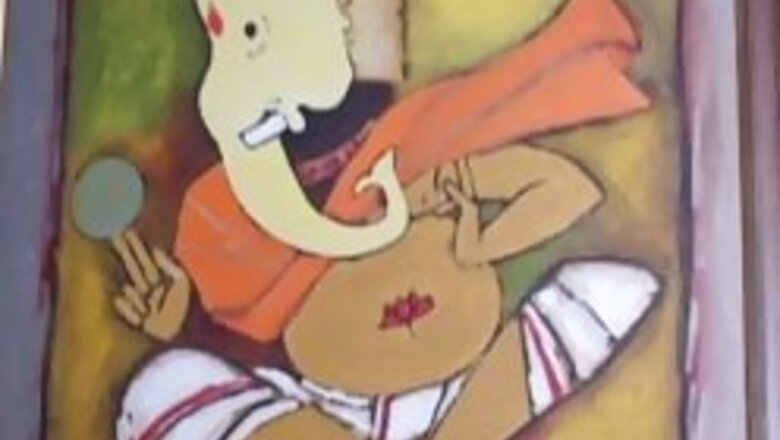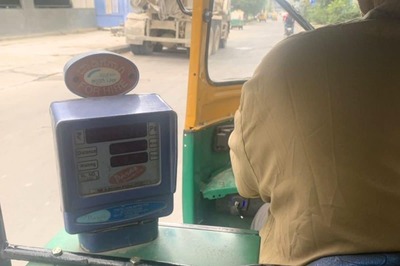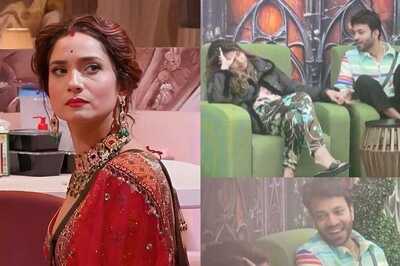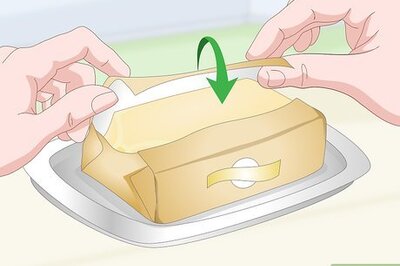
views
New Delhi: Art imitates life, but in an era of imitation, it imitates itself, too. After counterfeit drugs and fake designer wear, it is now art that is under attack.
Though fake art has been a global bane for long, the trend emerged in India sometime in the mid-80s when Indian art began getting its share of the limelight abroad and prices soared.
A couple of years ago, when I had discussed the subject with some prominent Delhi-based artists, there was just one thought in my mind - that the new millennium would undoubtedly be an era that would thrive on forgeries.
Over the years fakes have been doing a roaring business, gobbling up as much as 35 per cent share of the Rs 600-crore art industry in the country.
Among the artists whose works are faked most frequently are Raja Ravi Verma, Jamini Roy, Amrita Sher-Gill, Satish Gujral, M F Hussain, Anjolie Ela Menon, Tyeb Mehta and other senior artists.
The fakes are hardly discernable from the actual paintings and the artists who painted the orginals have by and large been silent spectators, unsure about the law on the subject and, in many cases, unwilling to deal with long and cumbersome court proceedings.
However, one of India's celebrated artists, Satish Gujral, once decided to drag a forger to court.
Gujral discovered the forgery when an art lover who intended to buy a painting from an art gallery brought it to the maestro himself for authentication.
"One look at the painting and I knew it was not mine," he had told me then.
"For starters, my piece was much larger than the work that the man had brought to me. I figured that the painting had been copied from a book of my works that Lalit Kala Akademy had released in 2000," he said.
Gujral went on to reveal that he would sign on the back of some his paintings. This was one of them.
However, the forger apparently didn't know this and had unwittingly reproduced the artist's signature on the painting itself.
The artist was horrified and infuriated. He confiscated the painting and contacted his lawyer who in turn contacted the gallery owner.
"The gallery owner pleaded ignornace saying she had bought the painting from an art dealer. She may have been right but the point is that there are many galleries that survive and thrive on this dubious business," Gujral said.
PAGE_BREAK
Other artists like Arpana Caur, Jamini Roy and Sanjay Bhattacharya too have had the misfortune of being the victims of their own creativity.
Bhattacharya narrated once such incident. "One gallery put up the fake of my best known work - Ghara. The original depicted two earthen pots in a dark room with a stained glass door. The copied painting was exactly the same with one difference - there was a man in the forefront holding a musical instrument."
"Another gallery ran an ad in a newspaper showing one of my water colours forged in oil," he said.
According to Bhattacharya, there are four ways in which paintings are forged:
- Copying an original but omitting to forge the signature of the artist.
- Another way is to change the medium - from oil to water colours or vice-versa.
- The third is to change the direction - for instance if in the original painting a person is standing on the right, the forger will put him on the left.
- Lifting different elements from various works of a single artist and incorporating them in one.
The artists are aware that such a racket thrives, but most are lost when it comes to preventing the menace. They feel the onus is on the law enforcement agencies, which need to be more active and change their callous attitude.
"When I approached the police with my problem, I was asked to arrange a decoy customer myself. How can an artist be an investigator and raid the gallery that supplies fakes," Arpana Caur said.
The artists feel that a heavy fine needs to be levied on the people who are involved in this activity.
With CNN-IBN's expose on fake art on Saturday, there is new hope that maybe the canvases of those forging paintings can be ripped for good.



















Comments
0 comment